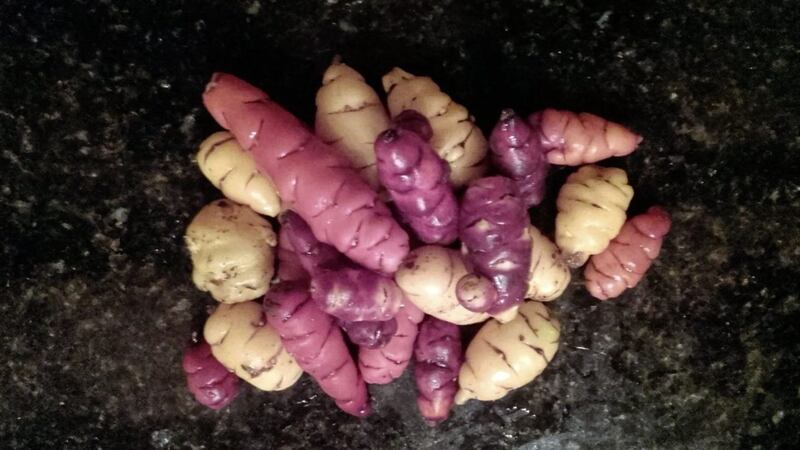KLAUS Laitenberger made an appearance in the very first instalment of The Casual Gardener, some 15-odd years ago. Back then he was head gardener at the Organic Centre in Rossinver, Co Leitrim and was, if memory serves me well, “talking a lot of crap” – or more precisely, discussing the mixture of garden waste, kitchen scraps and animal manure that is used to make garden compost.
Originally from southern Germany, Klaus has settled in the north west corner of Ireland, tending the oft-maligned Leitrim soil in a careful and studious manner few natives have ever matched.
From the Organic Centre he went on to become head gardener at Sligo’s Lissadell House, during the time of an extensive garden restoration in the mid-00s. For the past decade or so he’s been based at his own Milkwood Farm, where alongside wife Joanna, Klaus runs the Green Vegetable Seeds company, an online supplier of organic seeds. He also posts his own blog, writes books, makes video tutorials, and contributes to a number of newspapers and magazines. On top of this, he’s an inspector for the Organic Trust. Essentially, he’s the ‘go to’ man if you want to know anything about growing organic vegetables in Ireland.
For the next few weeks, however, Klaus will be out of the country travelling throughout Europe, the Americas and New Zealand in the name of horticultural research.
Since stumbling on a book called The Lost Crops of the Incas, he’s taken a keen interest in exotic South American crops, such as oca, mashua, ulluco, maca and yacon.
“I wondered that if the potato could grow and thrive in a wet county like Leitrim, why these other crops shouldn’t,” he told me earlier this month. “So I tried them out and nearly all of them performed extremely well here in Ireland.”
Klaus is taking his endeavour to a new level thanks to a Nuffield scholarship.
Providing a bursary of around £12,000, along with access to a network of scholars around the globe, a Nuffield scholarship is a once-in-a-lifetime opportunity to further your passion through learning.
Klaus is among five people from Ireland selected this year, with the others focussing on various aspects of agriculture.
He began his 10-week odyssey on March 9, initially travelling to the Netherlands, then on to Italy. The next stop is Canada before he heads south into Inca country. You can see occasional posts about the trip on Klaus’s Twitter feed – @KLaitenberger – though at the time of writing, the envisaged blog has yet to materialise.
Having carried out his initial viability tests on the South American crops, Klaus now wants to see first hand how they are utilised by those who grow and eat them regularly.
“I have experience in growing these crops in in various locations across Ireland but have never visited the place where they originate – I’d like to explore their native growing conditions, their cultivation methods and how they’re cooked,” he said.
“I am also planning to research the potato and to find out more about its history, the diversity of the potato and growing techniques which may all help in developing more resistant strains of potatoes.”
Klaus believes some of South American crops have definite commercial potential in Ireland.
“They will never come close to the potato but due to some of their health claims, as well as celebrity chefs’ recommendations, some of them may find a suitable niche in the Irish and European market,” he said.
Watch out for Klaus's forthcoming book on his trip and catch his blog at greenvegetableseeds.com








